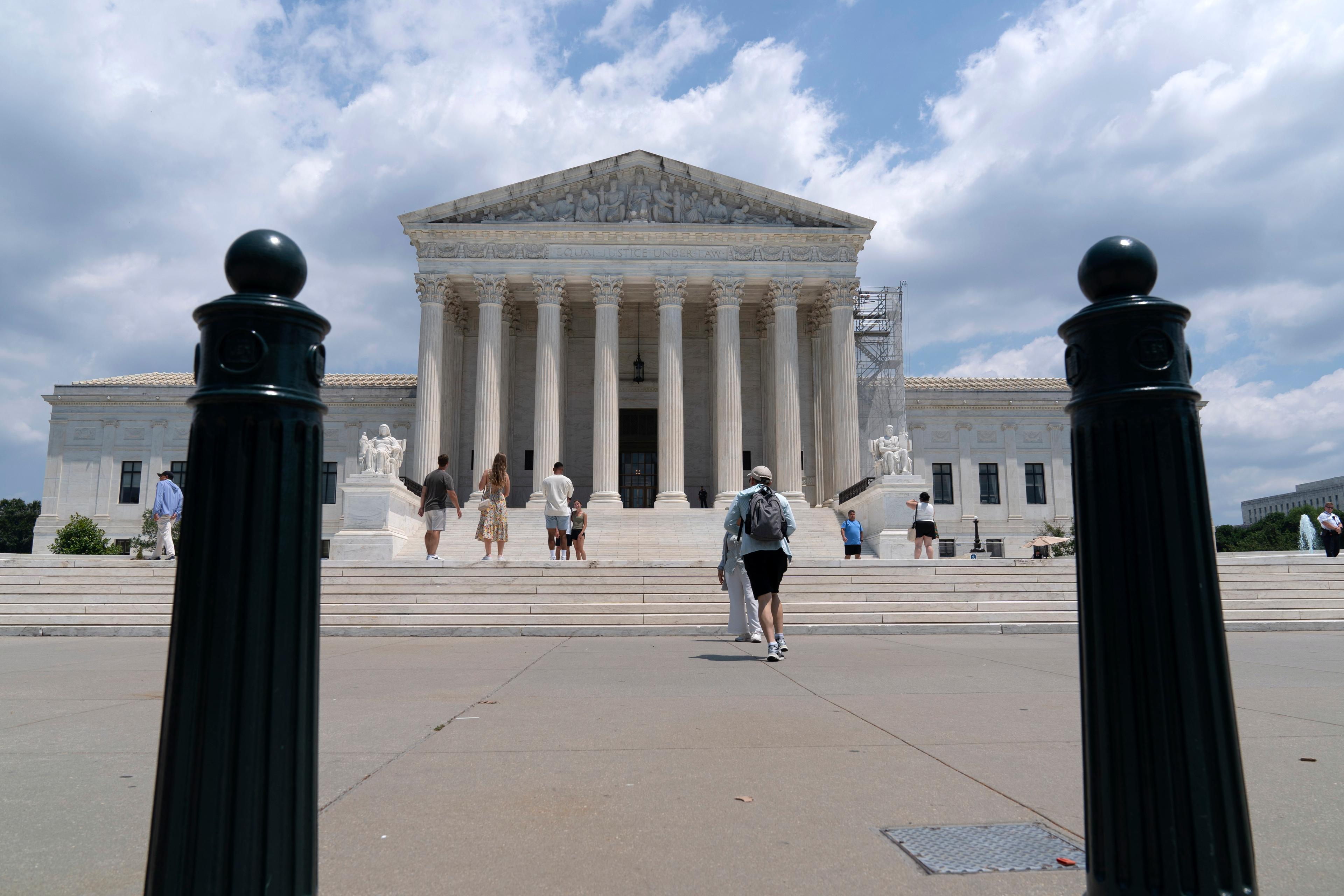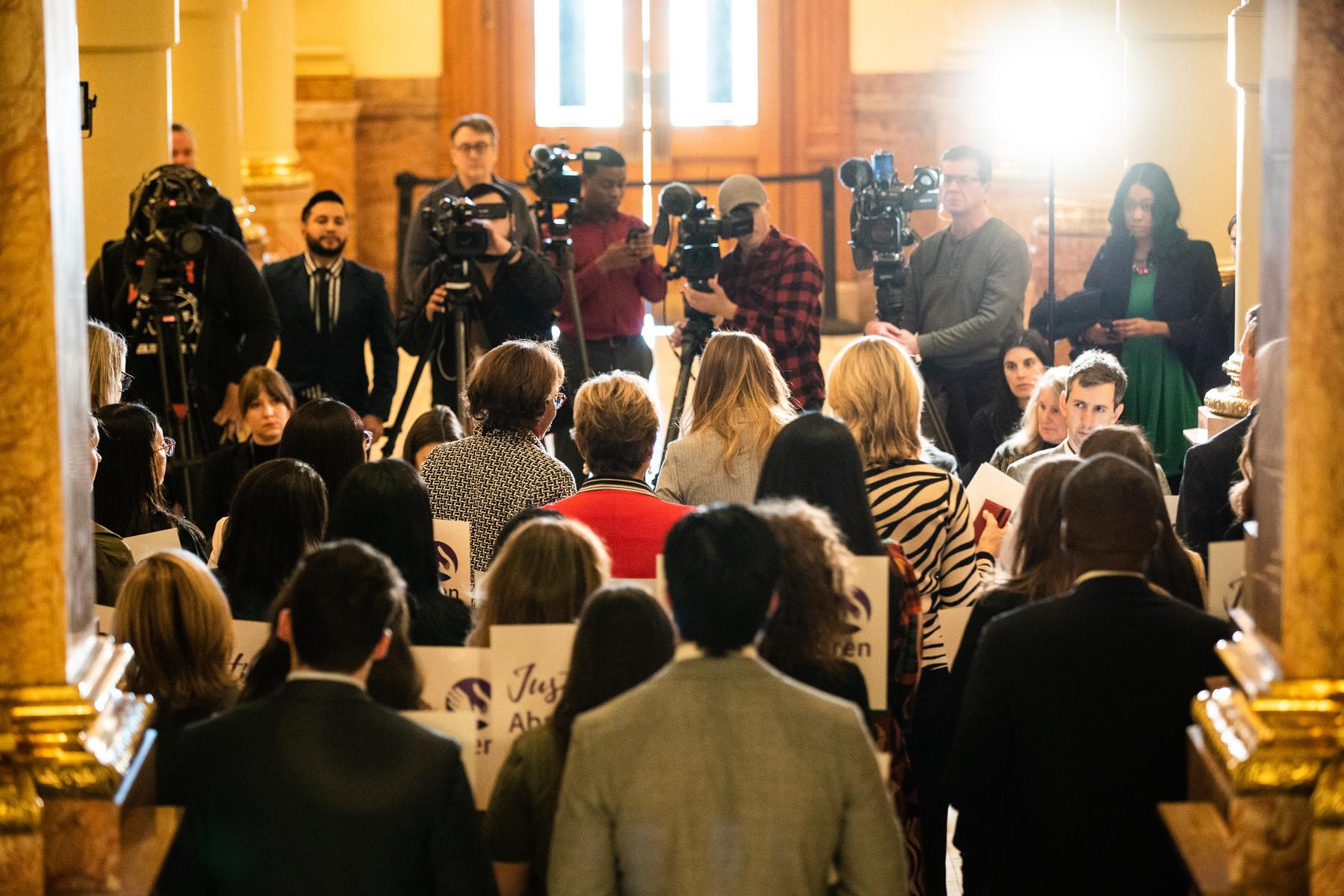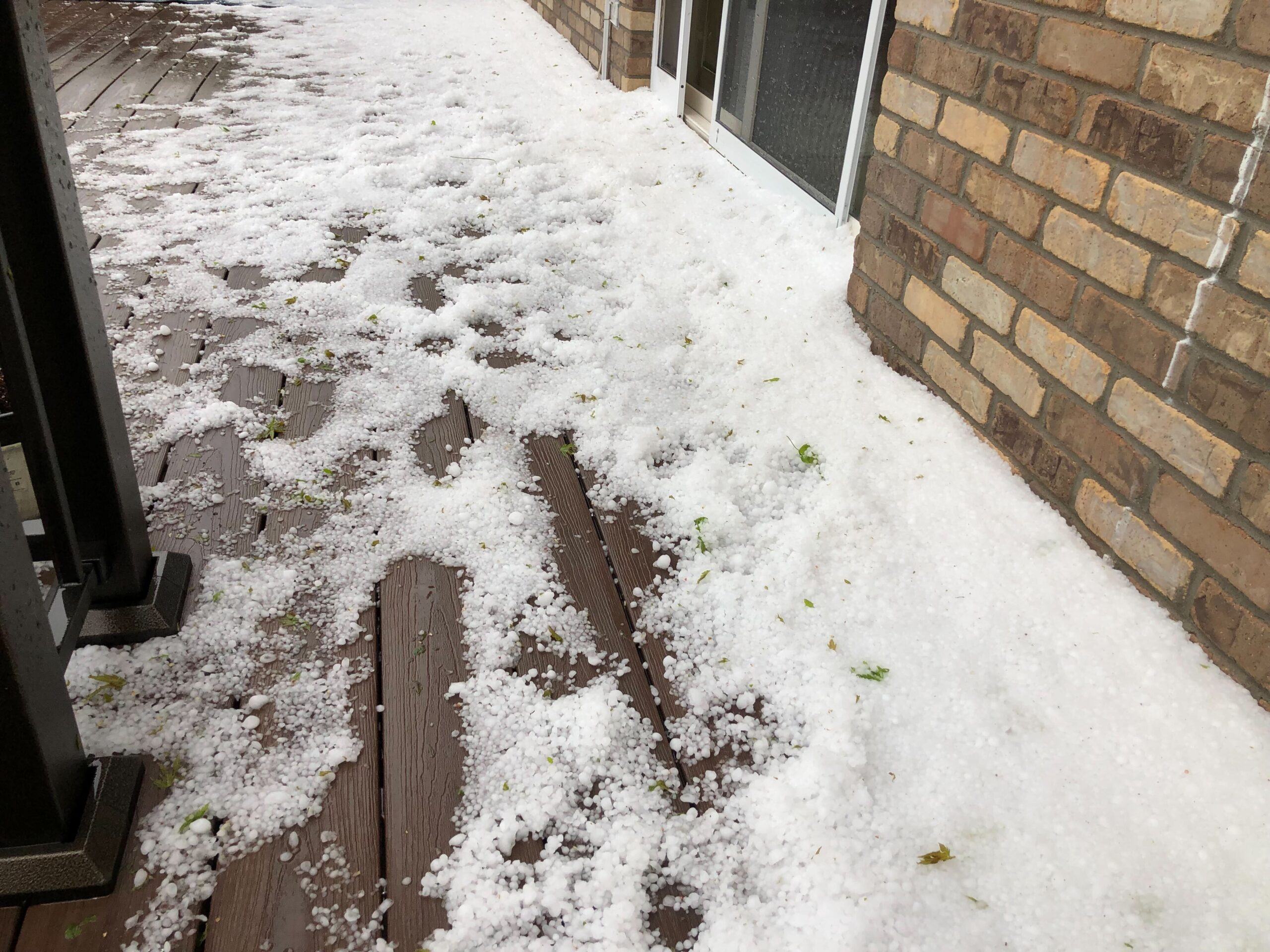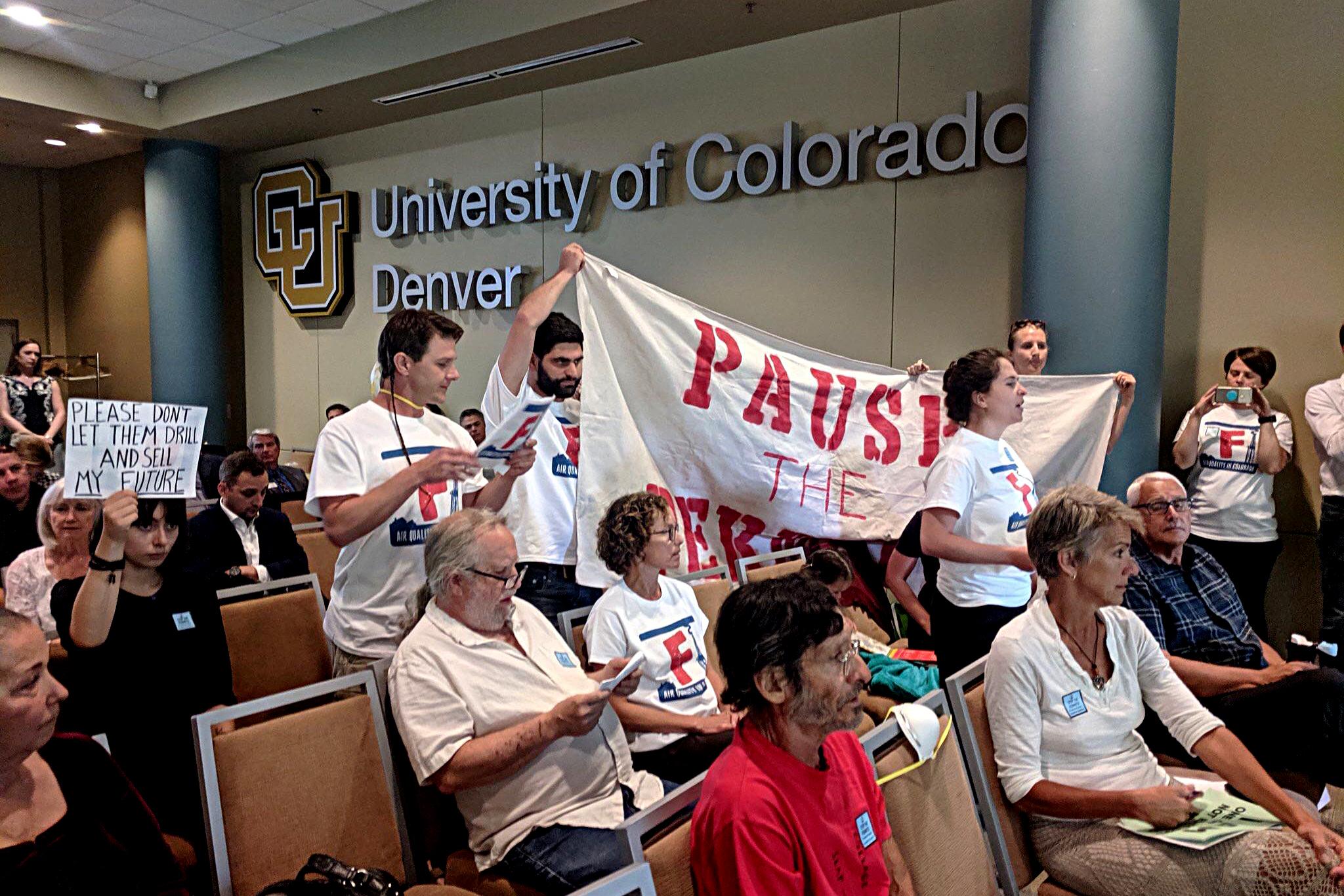
In April, Gov. Jared Polis made an audacious declaration as he signed a bill overhauling state oil and gas regulations. Senate Bill 181 promised to make health and safety the top priority for state regulators and give more local government more power of drilling.
"Today, it is our hope that the oil and gas wars that have enveloped our state are over," Polis said at the signing ceremony. "And the winner is all of us."
On Wednesday, environmental activists packed a Colorado Oil and Gas Conservation Commission meeting to send a clear message to the governor and the state: The wars are far from over. In fact, they may have just begun.
The meeting was the first chance for the COGCC to write rules under the new legislation. Its specific task was to consider whether administrative law judges could evaluate oil and gas permit applications, but activists didn't focus on those specifics.
Instead, many in the audience wore red "Fs" to highlight some Colorado counties' failing air quality grades from the American Lung Association. Another wore a face mask marked with the words "climate crisis." When representatives from the oil and gas industry spoke before the commission, the activists coughed or shouted in interruption. "You're killing us," was one common refrain.
Evan Ravitz, a Boulder activist, even suggested in his testimony that the "succulent" fossil fuel executives will be eaten first once the climate apocalypse takes hold.
Nancy McDonald, a landsman for Anadarko Petroleum, was one of many oil and gas supporters who grew frustrated with the tactics.
"Keeping it in the ground is not an option," she told the commissioners after listing off a set of plastic medical products. She was quickly drowned out by coughs from the audience. "That's very rude," she said.
After a few more interruptions, Department of Natural Resource Executive Director Dan Gibbs called a recess and threatened to bring in law enforcement. Two police officers did arrive for the rest of the meeting but made no arrests.
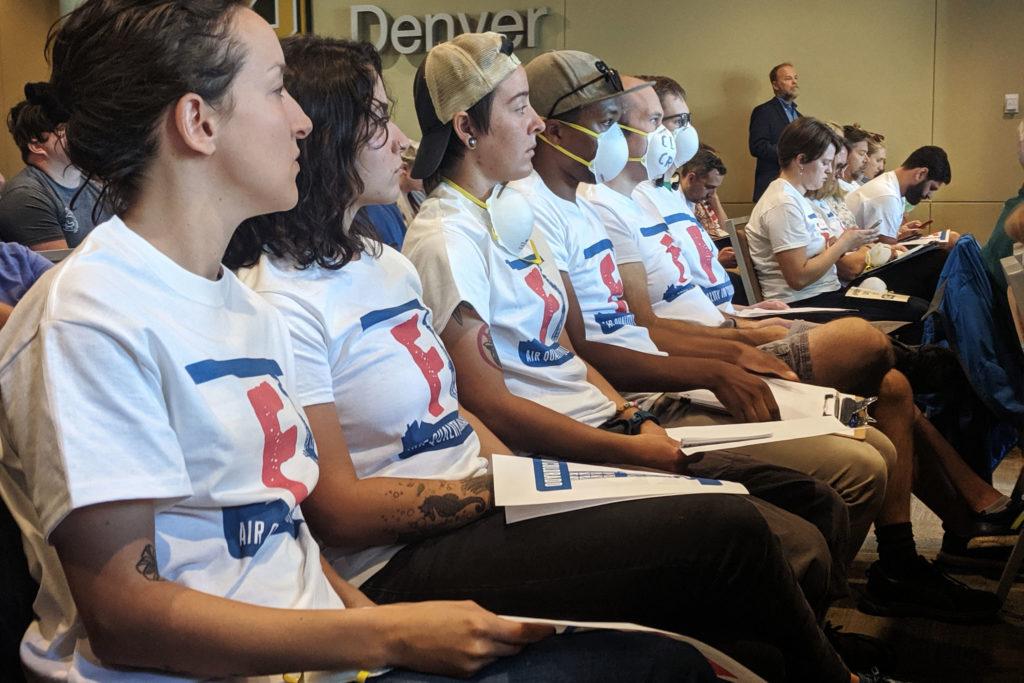
The protests were organized, in part, by local members of the Extinction Rebellion, which recently made headlines when some of its members Super Glued themselves to the entrance of the U.S. Capitol. The group has also stopped traffic in midtown Manhattan and London.
Suzanne Spiegel, an activist who worked for last year's failed ballot measure to increase setbacks for new drilling, said civil disobedience was necessary due to the commission's inaction.
Since SB-181 passed, the panel has approved 339 new drilling permits and 40 new permits for site locations, according to the Department of Natural Resources. Spiegel said the commission should wait to implement the law before allowing any new permits.
"We're asking Gov. Polis not to create symbolic change, but to create real change we can see and feel in our communities," she said. "If health and safety is a priority, how come new permits are being approved every single week?"
Chris Arend, communications director for the Colorado Department of Natural Resources, which oversees the COGCC, said the commission has until July 20, 2020, to come up with rules implementing SB-181. When asked about the demand to stop new permits until then, he said that was never the intention of the governor or the legislature.
"We have a lot of work to do. We have a lot of rulemaking to do. So we're going to move ahead," he said.
Many oil and gas representatives left the meeting feeling disrespected. Luke Coats, who works with an oil and gas equipment company, said that he remained silent and civil throughout the public testimony, even when he disagreed.
"I personally like to listen to the opposition," Coats said. "I learn from them and take it back to the industry."
Lynn Granger, executive director of the Colorado Petroleum Council, echoed those sentiments in a statement. She wrote that she found the tenor of the hearing "troubling."
“Our families call this state home. Our industry represents generous and thoughtful neighbors and contributing members of our communities across Colorado. And we seek the same safe, environmentally conscious outcomes that every Coloradan should expect. We will continue to work with all stakeholders, address concerns, and have reasonable conversations about the future of energy production in Colorado."

